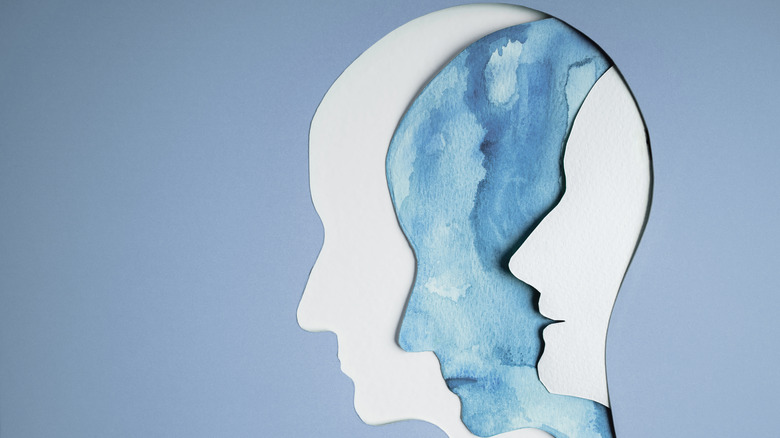Why People Experiencing Multiple Mental Illnesses Is So Common
Mental illness continues to affect populations around the globe. In the United States, "mental health disorders account for several of the top causes of disability," as reported by Johns Hopkins Medicine. In 2020, 52.9 million adults were affected by a mental health disorder, along with 14.2 million adults who were diagnosed with more severe cases of mental illness, as per the National Alliance on Mental Illness (NAMI). With many cases beginning in early adolescence, comorbid diagnoses of multiple mental health disorders are common, particularly when it comes to depression, anxiety, and substance use disorders.
A new study published in Nature Genetics set out to explore underlying genetic similarities across 11 different psychiatric disorders, including anxiety disorder, major depressive disorder, bipolar disorder, schizophrenia, obsessive-compulsive disorder, and alcohol use, amongst others (via HealthDay). While there were no genetic links detected across all 11 disorders, certain disorders were found to share a genetic likeness with at least one other mental health condition.
Certain mental health disorders share genetic similarities
By comparing thousands of donated genetic samples, researchers were able to identify strong genetic correlations between anorexia nervosa and obsessive-compulsive disorder; bipolar disorder and schizophrenia; as well as major depression and anxiety, as reported by HealthDay. Some correlations were observed to be particularly strong, such as schizophrenia and bipolar disorder, which were found to share 70% of their genetic similarities.
In total, over 150 genetic variants were found to be present across various mental disorders, 20 of which had been previously undiscovered (via Nature Genetics). While the exact role that these genes play in the development of mental illness remains to be seen, lead study author Andrew Grotzinger believes their team has made a step in the right direction toward better understanding the genetic makeup of these disorders. "This study is a stepping stone toward creating a diagnostic manual that better maps on to what is actually happening biologically," Grotzinger elaborated in a public statement (via HealthDay).
Further commenting on the significance of their findings, Grotzinger feels the research can lend patients a better understanding of mental illness overlap. "It's important for people to know that they didn't just get a terrible roll of the dice in life — that they are not facing multiple different issues but rather one set of risk factors bleeding into them all," Grotzinger said (via HealthDay).
If you or someone you know is struggling with mental health, please contact the Crisis Text Line by texting HOME to 741741, call the National Alliance on Mental Illness helpline at 1-800-950-NAMI (6264), or visit the National Institute of Mental Health website.


